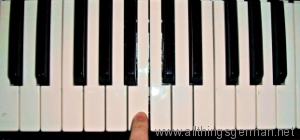Within the past half hour Germany has won the 55th Eurovision Song Contest with a song called “Satellite” and performed by a previously unknown artist – “Lena”.
Germany picked up points from most of the countries voting, so even though many gave 12 points to their traditional neighbouring recipients, eventually they could not be caught.
German television has shown live scenes from Hamburg with a crowed of 70,000 people celebrating the win.
Here is the winning song:

